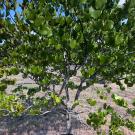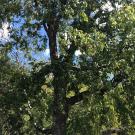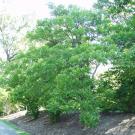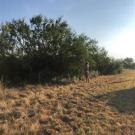Texas Tree Trials Database
Texas Tree Trials Database
The Texas Tree Trials Database is a collection of information about 45 tree species of interest because of their novelty and potential for the Sacramento Valley region as it adapts to a changing climate. The database is meant to serve as a resource for horticulturists, arborists, researchers and all tree lovers. In it you will find preliminary research results from the Texas Tree Trials, and horticultural information on each taxon. You will also find the average performance rating from a pre-trial survey of experts.
Please note that these trees are not yet widely available for purchase in our region. However, as they are tested for their various attributes and shortcomings, we aim to increase availability of the most promising species.
Use the search block on the right to learn more about specific species. For questions about this research please contact Abbey Hart, nursery special projects manager via email: aghart@ucdavis.edu.
- Learn More
-
While identifying target species, we surveyed experienced horticulturists in Texas and California on their professional assessment of each species. The trees that do not have an average rating were either additionally, serendipitously collected in our travels, or have not been widely planted enough for experts to assess their performance. Rigorous propagation trials were outside the scope of this project, but we have included a summary of the various propagation treatments we used and their results. In the future, as we collect data on the performance of each species in our field trials, we will add assessments of drought and heat tolerance, growth rate and other metrics of climate readiness and horticultural performance.
Students in the Learning by Leading™ Urban Tree Stewardship team researched and wrote about the horticultural promise as well as potential issues for each species. Special thanks to the Ladybird Johnson Wildflower Center for sharing their knowledge and the Urban Forest Ecosystems Institute SelecTree for sharing their knowledge and photos.




